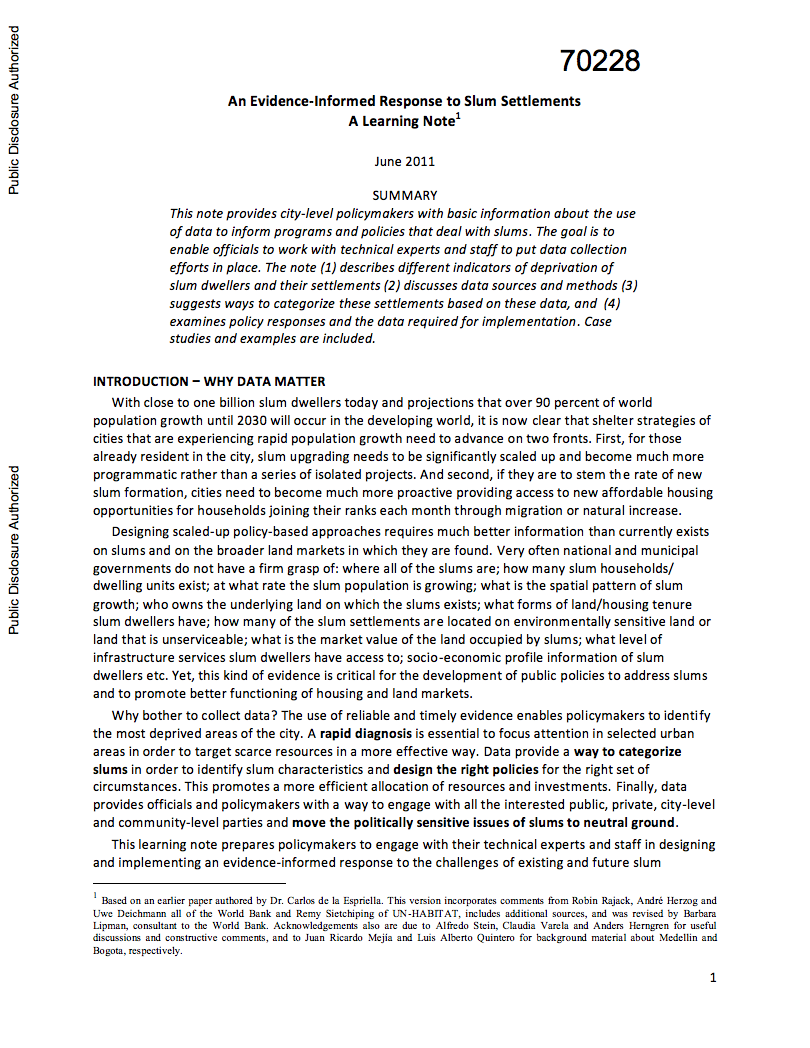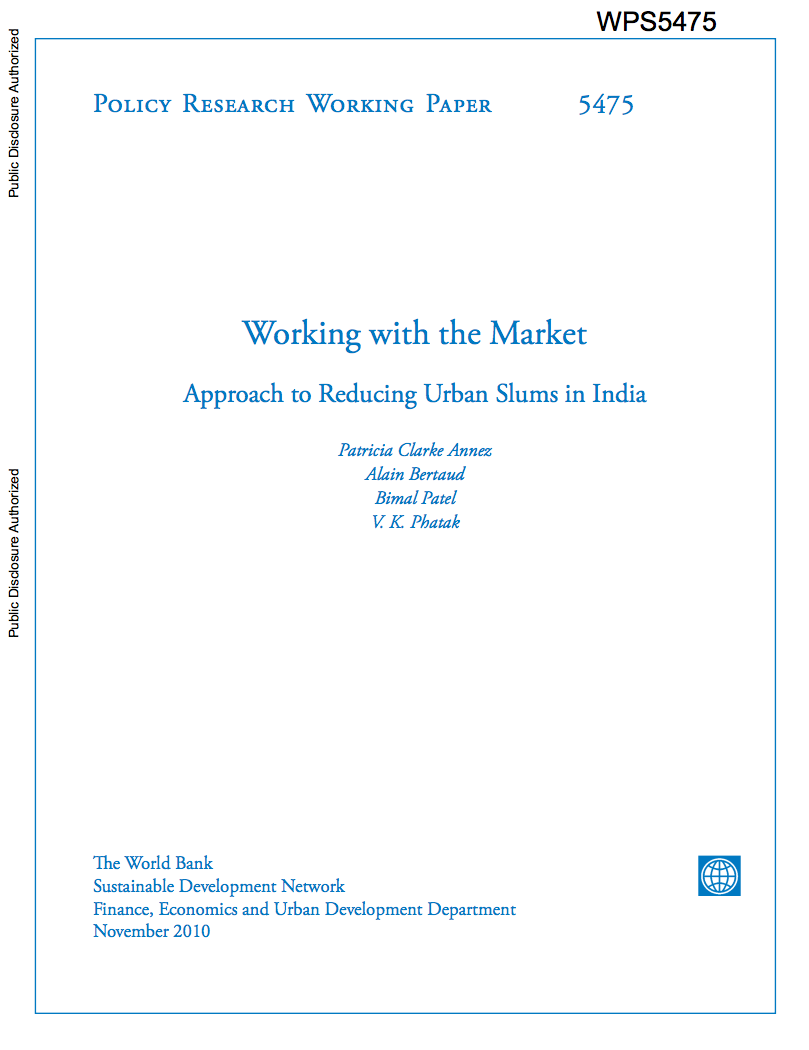An Evidence-Informed Response to Slum Settlements : A Learning Note
This learning note prepares policymakers
to engage with their technical experts and staff in
designing and implementing an evidence-informed response to
the challenges of existing and future slum settlements. To
that end, the note discusses a set of indicators and data
analysis techniques needed in the identification and
characterization of slums as well as relevant lessons and
examples. In addition, the noted discusses the data



